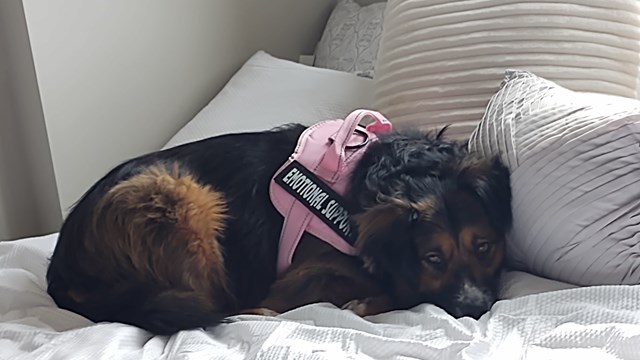
Co-op boards are often faced with difficult judgment calls; on the one hand, it’s the duty of board members to safeguard their fellow shareholders’ investments and overall quality of life. On the other hand, they must carry out that duty on the right side of the law, or risk serious legal penalties for themselves and their cooperative corporation at large. The issues of disability, disclosure versus privacy, and reasonable accommodation are tightly interwoven in the context of a co-op building’s admissions process. Navigating these issues requires great care on the part of admissions committees to insure that the building’s board makes sound decisions without infringing on the rights of a prospective buyer.
The Case
The line between upholding fiduciary duty and making potentially expensive legal blunders is sometimes less than clear to volunteer board members with limited knowledge of the law. This fact that was brought home vividly this past June, when the New York County Supreme Court ruled in favor of a prospective co-op buyer whose purchase was stalled for four whole years by a board’s ignorance of the law and disagreement over their obligation to accommodate his disability.
Back in 2005, on the very day he was scheduled to close on an apartment in the 20166 Tenants Corporation co-op in Manhattan, buyer Constantine Hassapoyannes asked the co-op’s managing agent a delicate question. Some of the units in his new building had washing machines, but current house rules prohibited the installation of new washer/dryer equipment. Because of extensive cancer surgery, Hassapoyannes required laundry facilities within his apartment to clean linens and garments. Would the board have a problem with him installing a washer/dryer in his new apartment to accommodate this need?
As it turns out, the answer was yes, that was a problem. So much so that the board of 20166 Tenants Corporation delayed the closing on the apartment and ultimately withdrew its approval of Hassapoyannes’s purchase entirely. As one might imagine, legal entanglements ensued immediately, with Hassapoyannes (represented by Manhattan-based law firm Vernon & Ginsburg) suing the board to overturn their rejection of his application and get the closing back on-track.
For their part, according to court documents, the co-op board (represented by the Manhattan-based law firm of Cantor Epstein & Degenshein) felt that Hassapoyannes had deliberately withheld important information during his interview, and were concerned that he might have misrepresented other significant facts and information about himself during the interview/disclosure process. The board argued that in light of Hassapoyannes’s formal acknowledgement and acceptance of the co-op’s rules (which included the washer/dryer restriction), the omission of his own intention to install a washer/dryer was not only deceitful, but legally actionable. According to sources close to the case, certain board members felt so strongly that Hassapoyannes was in the wrong that they took the suit all the way to the Appellate Court before admitting defeat.
Disclosure vs. the Law
According to Justice Emily Jane Goodman’s final decision on the case, “The Fair Housing Act prohibits the refusal to sell or to negotiate for the sale or rental of, or otherwise make unavailable or deny, a dwelling to any person because of a handicap. As this court has already noted in its decision dated December 1, 2005, the Fair Housing Act applies to cooperative apartments. Discrimination under the Fair Housing Act includes the failure or refusal ‘to make reasonable accommodations in rules, policies, practices, or services, when such accommodations may be necessary to afford such person equal opportunity to use and enjoy a dwelling.’ Reasonable accommodations might, in some cases, excuse actions that would otherwise constitute a violation of a lease or cooperative rules.”
While the debate over whether or not the co-op board acted improperly in response to Hassapoyannes’s plan to install a washer/dryer in his new apartment is important, of even more interest to other boards is the issue of whether or not the board was entitled to ask—or be informed about—the prospective buyer’s disability at any point in the application process.
According to court documents, the board of 20166 Tenants Corp. didn’t withdraw its approval of Hassapoyannes’s purchase because of his disability or because he requested reasonable accommodation for it. Indeed, his financial materials indicated that he received monthly disability payments, so that was no secret. Rather, the board’s issue was that Hassapoyannes did not level with them about his situation in his interview, and that “In light of [the co-op’s] rule prohibiting washing machines in individual apartments…it was Hassapoyannes’ responsibility to raise the issue with the co-op at his interview.”
Further, the documents relate that “The co-op argued that [the buyer’s] failure to disclose his need for a washer/dryer until the last minute was indicative of a dishonest and uncooperative nature, and gave the co-op reason to believe that the buyer would not work with the co-op to insure a safe installation of a washer/dryer—thus providing a legitimate, nondiscriminatory reason for rescinding its approval.”
The Decision
The quality of the board’s argument may be debatable—but was their action legal? According to Judge Goodman in her final decision on the case, the answer is no. New York State’s and New York City’s Human Rights Law expressly prohibit the owner of an housing accommodation “to make any record or inquiry in connection with the prospective purchase, rental, or lease of such a housing accommodation which expresses—directly or indirectly—any limitation, specification, or discrimination as to…disability.”
“Absent limited exceptions,” Goodman continued, “the regulations promulgated pursuant to the Fair Housing Act prohibit making an inquiry regarding whether a person has a disability, or inquiring as to the nature or severity of that disability. (italics added, -ed.) If the co-op board may not inquire about a disability, it should not be permitted to penalize a prospective purchaser or failing to volunteer information about that disability, as that would defeat the purpose and policy of the law.”
Finally, Judge Goodman summed up the reasoning behind her decision on behalf of Mr. Hassapoyannes:
“The issue at hand…is whether the approval of Hassapoyannes’ application to purchase an apartment may be rescinded because he asked for such a reasonable accommodation after his interview, but before the closing. Hassapoyannes is not questioning the validity of the co-op’s rule, nor questioning that before permission to install a washer/dryer as a reasonable accommodation is granted, plans for the installation of the equipment would have to be reviewed by appropriate experts.
“The flaw in the co-op’s reasoning,” the judge continued, “is its conclusion that Hassapoyannes was untruthful based only upon his failure to disclose his disability until after his interview—even though the law protected him from being compelled to do so. The co-op’s speculation that Hassapoyannes would install an illegal washing machine is belied by the fact that he sought an accommodation to install washer/dryer prior to closing, and is, in any event, based upon the co-op’s improper belief that Hassapoyannes was obligated to disclose his disability at the interview. Hassapoyannes’ failure to come forward with information concerning his need for a reasonable accommodation at the interview…does not constitute a valid basis for withdrawing approval of his purchase application.”
Boards, Take Note
In the case of 20166 Tenants Corporation, a poor understanding of the law and the limits of a board’s power to demand personal information from a prospective buyer wound up costing the building and embroiling the board, buyer, and seller in a legal battle that lasted for several years. According to Darryl M. Vernon, a Manhattan-based attorney involved in the case, the lesson to be taken away from the case is that “While boards may [enjoy] significant control over what could be called their quasi-municipalities, boards don’t control the laws against discrimination. During the entire approval process, both boards and applicants would be well served to know their respective obligations and rights.”
Reconciling the requirements of the law, one’s fiduciary duty to one’s building, and the very human tendency to go with one’s gut is no small task for a co-op or condo board member. When faced with a tough decision—particularly when there’s a question about the actual letter of the law—the best approach is to call in your legal professionals and work with them to develop a legally and procedurally sound approach to the issue before it spirals out of control and you’re faced with acrimony and steep legal bills.
Hannah Fons is associate editor of The Cooperator.









4 Comments
Leave a Comment